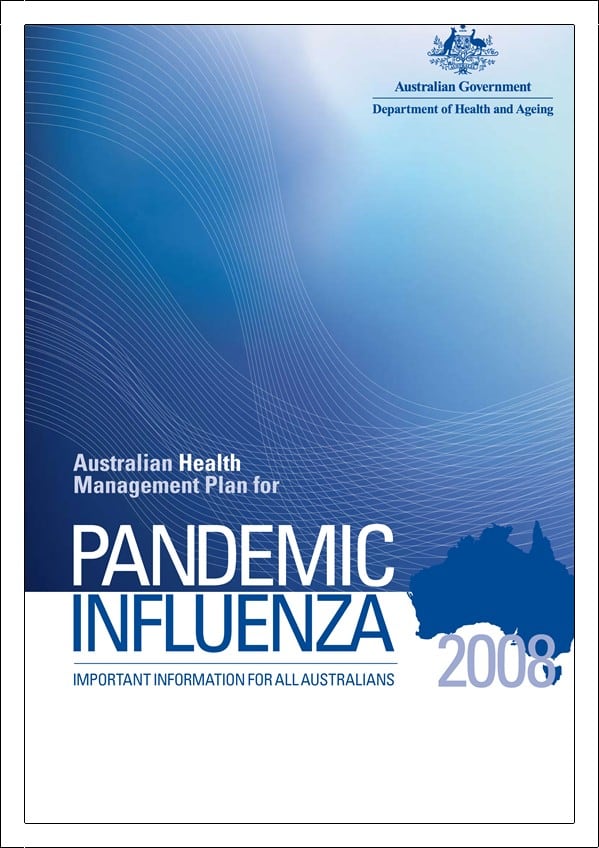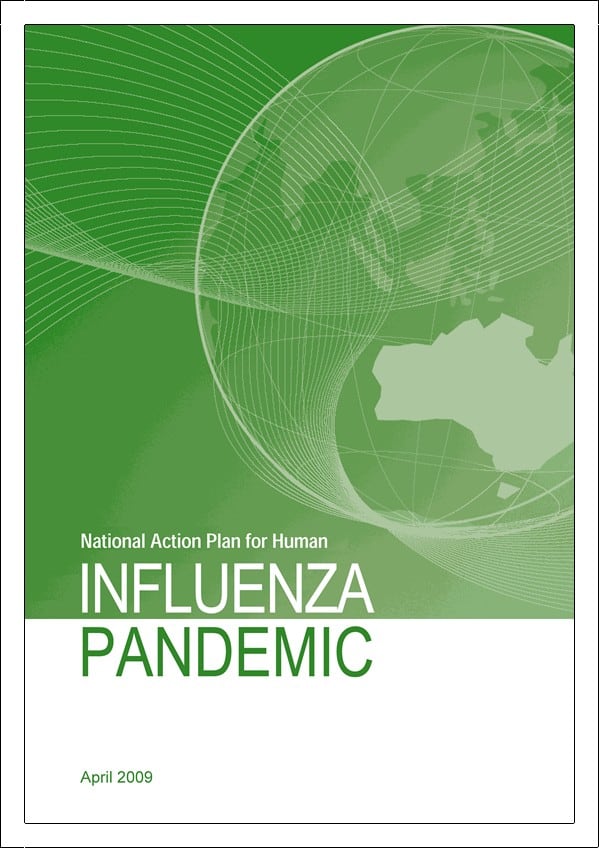SafetyAtWorkBlog has no expertise in the control of infectious diseases. Any enquiries received on the issue are directed to the official information on government websites such as Australia’s Dept for Health & Ageing or the US Centre for Disease Control, or international authorities such as WHO.

But this creates a dilemma for OHS regulators. If the regulator does nothing, it is seen as inactive – a bad thing. Or the regulator can issue its own guidance on infection control – a good or bad thing. It is an unenviable choice.
WorkSafe Victoria took the latter choice and issued their “OHS preparedness for an influenza pandemic: A guide for employers” in early May 2009. The guide is not intended to be definitive and may be useful in the future but infectious outbreaks can move rapidly and, to some extent, this document is shutting the door after the horse has bolted, in expectation of the next “door”.
The guide mentions the following sources but it could be asked what is gained by contextualising these Australian documents? Why not just direct companies to the raw documents?
- Australian Health Management Plan for Pandemic Influenza 2008 , Australian Department of Health and Ageing.
- National Action Plan for Human Influenza Pandemic, Department of the Prime Minister and Cabinet.
- Business Continuity Guide for Australian Business, Department of Innovation, Industry, Science and Research.
 The trap for producing localised guides is that recommendations may be made that are out-of-place, difficult to implement and, ultimately, question the credibility of the document. WorkSafe fell for this trap by specifying some recommendations for the legitimate control measure of “social distancing”.
The trap for producing localised guides is that recommendations may be made that are out-of-place, difficult to implement and, ultimately, question the credibility of the document. WorkSafe fell for this trap by specifying some recommendations for the legitimate control measure of “social distancing”.
In its employers guide it makes the following recommendations:
“A primary transmission control measure is social distancing, that is reducing and restricting physical contact and proximity. Encourage social distancing through measures such as:
- allowing only identified, essential employees to attend the workplace
- utilising alternative work options including work from home
- prohibiting handshaking, kissing and other physical contact in the workplace
- maintaining a minimum distance of one metre between employees in the workplace (person-to-person droplet transmission is very unlikely beyond this distance)
- discontinuing meetings and all social gatherings at work including informal spontaneous congregations
- closing service counters or installing perspex infection control barriers
- using telephone and video conferencing.”
 The guide does recommend social distancing as part of a risk management process but “prohibiting handshaking, kissing and other physical contact in the workplace”? “Discontinuing … informal spontaneous congregations”?
The guide does recommend social distancing as part of a risk management process but “prohibiting handshaking, kissing and other physical contact in the workplace”? “Discontinuing … informal spontaneous congregations”?
How is a business expected to police these sorts of measures? Have someone walking the workplace reminding workers of the new “no touchy” policy?
The Australian Health Management Plan for Pandemic Influenza talks repeatedly about social distancing in workplaces, the community and families but never goes to the extent WorkSafe has.
The National Action Plan for Human Influenza Pandemic (NAP) defines social distancing as:
“A community level intervention to reduce normal physical and social population mixing in order to slow the spread of a pandemic throughout society. Social distancing measures include school closures, workplace measures, cancellation of mass gatherings, changing public transport arrangements and movement restrictions.”
NAP does not mention kissing, nor does the Business Continuity Guide For Australian Businesses .
WorkSafe WA has not issued anything specific on pandemic influenza, nor has SafeWorkSA, WorkCover NSW defers to NSW Health (which has a lot of information and a reassuring video from the health officer), and Queensland’s OHS regulator defers to its State health department.
Social distancing is an appropriate hazard control measure amongst other measures in an influenza risk management plan but the current WorkSafe Victoria guidance seems to be an unnecessary duplication, and on the matter of kissing, silly. Why, oh why did WorkSafe Victoria think it necessary to publish anything?
